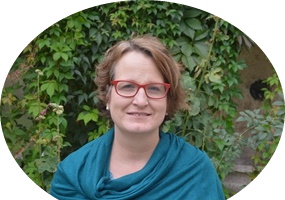Friday, 19 November 2021
Greetings
Crete 10.00
Madrid 09.00
Lisbon 08.00
Dimitris Mylonakis, Deputy Rector of Planning, Administrative Affairs and Student Welfare, Professor of Economics, University of Crete
Ana Mónica Fonseca, Center for International Studies, ISCTE-Instituto Universitário de Lisboa
Konstantinos Tsoukalas, Emeritus Professor, Department of Political Science and Public Administration, National and Kapodistrian University of Athens
Alexis Kalokerinos, Chairperson of The Society of Cretan Historical Studies / Historical Museum of Crete (SCHS/HMC, FYM partner), Professor of General Linguistics, Department of Philology, University of Crete
Nikos Papadakis, Deputy Director, UCRC, Professor, Department of Political Science, University of Crete
Maria Kousis, Director, UCRC, Professor, Department of Sociology, University of Crete
Keynote Speech
Crete 11.00
Madrid 10.00
Lisbon 09.00
Kostis Kornetis - “Between Marat and Sade”: Rethinking Student Protest in the Authoritarian context of the European South
This talk aims to discuss the main ideological and (counter) cultural characteristics of the Greek, Spanish and Portuguese student mobilisations against the respective dictatorships during the so-called Long Sixties. It highlights their affinities, as well as their relation to the simultaneous protest waves taking place in Western Europe and the US around 1968. The paper will demonstrate that in these three cases similar governmental measures by the authoritarian regimes prompted comparable reactions by movements from below. At the same time, it will aim to highlight how the intellectual stimuli coming from the international 1968, including the transnational diffusion of revolutionary cultural manifestations, shaped an anti-regime protest culture with shared characteristics in Greece, Spain and Portugal. Lastly, the talk will focus on the differences and mainly on the absence of a culminating event in Spain and Portugal of the calibre of the Polytechnic uprising in Greece, which subsequently affected the culture of protest and the commemoration of events in the post-dictatorship years.
 Kostis Kornetis teaches contemporary history at the Autonomous University of Madrid (UAM). He has taught at Brown, New York University, and the University of Sheffield, and was CONEX-Marie Curie Experienced Fellow at Carlos III, Madrid, and Santander Fellow in Iberian Studies at St Antony’s College, Oxford. He is the author of Children of the Dictatorship. Student Resistance, Cultural Politics and the ‘long 1960s’ in Greece (Berghahn Books, 2013) and co-editor of Metapolitefsi (Themelio, 2015), Consumption and Gender in Southern Europe since the “Long 1960s” (Bloomsbury, 2016) and Rethinking Democratisation in Spain, Greece and Portugal (Palgrave Macmillan, 2019). He is currently writing a book on the generational memory of the transitions to democracy in Southern Europe (OUP, forthcoming 2022).
Kostis Kornetis teaches contemporary history at the Autonomous University of Madrid (UAM). He has taught at Brown, New York University, and the University of Sheffield, and was CONEX-Marie Curie Experienced Fellow at Carlos III, Madrid, and Santander Fellow in Iberian Studies at St Antony’s College, Oxford. He is the author of Children of the Dictatorship. Student Resistance, Cultural Politics and the ‘long 1960s’ in Greece (Berghahn Books, 2013) and co-editor of Metapolitefsi (Themelio, 2015), Consumption and Gender in Southern Europe since the “Long 1960s” (Bloomsbury, 2016) and Rethinking Democratisation in Spain, Greece and Portugal (Palgrave Macmillan, 2019). He is currently writing a book on the generational memory of the transitions to democracy in Southern Europe (OUP, forthcoming 2022).
Panel 1
Crete 12.00
Madrid 11.00
Lisbon 10.00
Cinema, Documentary and Resistance against the dictatorship
Chair. Anastasia Natsina

Anastasia Natsina is Assistant Professor of Modern Greek Literature and Director of the Research Lab for Literary Genres and the History of Literature at the University of Crete. Her research interests and publications center mainly on Modern Greek fiction from the end of 19th century up to the present day. More recently, she is interested in the use of digital methods for the study of the history of literature as well as Ecocriticism.
Eliza-Anna Delveroudi, “From Athens to Paris: Greek Filmmakers resisting the dictatorship”
In this overview I will briefly present a scheme that I have come up with through my broader research on the role of the young generation of Greek filmmakers during the 1967-1974 dictatorship. I will follow them in two cities, Athens and Paris. I will refer to artists, films and ways of resistance; to the climate that had been formed before the dictatorship, and that encouraged new voices to enter the scene; to the changes imposed after the 21st of April, the severe censorship, and the physical hardships of these filmmakers, just to mention two examples, by arrests, imprisonments, exiles, trials and torture. Some of them escaped abroad, namely in Paris, and participated in the resistance, which aimed to encourage the democrats in Greece, to raise the awareness of the Europeans, to unveil the real image instead of the idyllic one that the regime intended to create for itself.
 Professor Eliza-Anna Delveroudi is a Greek Cinema and Theatre historian. She has published widely on film and theatre history, early and silent cinema, film press and criticism, politics in Greek theatre and film comedy, young people in Greek film comedy, antiquity on film, stardom in Greek theatre and cinema, school on screen, Greek women filmmakers. She has been teaching at the University of Crete, the Athens School of Fine Arts, and has worked as an appointed researcher at the National Foundation of Research.
Professor Eliza-Anna Delveroudi is a Greek Cinema and Theatre historian. She has published widely on film and theatre history, early and silent cinema, film press and criticism, politics in Greek theatre and film comedy, young people in Greek film comedy, antiquity on film, stardom in Greek theatre and cinema, school on screen, Greek women filmmakers. She has been teaching at the University of Crete, the Athens School of Fine Arts, and has worked as an appointed researcher at the National Foundation of Research.
Panayiota Mini, “Capturing and Reenacting the 1973 Polytechnic uprising on film: Albert Coerant’s and Dimitris Makris’s documentaries”
From 14 to 17 November 1973, Albert Coerant – the Belgian and Dutch TV correspondent in Athens at the time –and his crew clandestinely filmed the students’ uprising (the Athens Polytechnic Uprising) against the junta; the documentary that Coerant made out of this material constitutes one of the rare visual evidence of the November 1973 events. Soon after Coerant’s work, Dimitris Makris, a young Greek filmmaker then studying in Italy, reenacted the Polytechnic events in his docudrama Edo Polytechneio (Here is the Polytechnic). Italian students and artists contributed to the making of Makris’s film, the Italian anti-fascist politician Umberto Terracini was the narrator in the Italian version of it, and Alekos Panagoulis—a symbolic figure of the fight against the Greek junta—was the narrator in the Greek version. This presentation will examine these two significant films about the Polytechnic Uprising, paying attention to their contribution to documenting and interpreting the 1973 students’revolt.
 Panayiota Mini holds two MAs in film studies (University of Crete; University of Wisconsin-Madison), and a Ph.D. from the University of Wisconsin-Madison (Ph.D. thesis: “Pudovkin’s Cinema of the 1920s”). Her research interests and publications concern Greek cinema, Soviet and East European cinema, Nikos Kazantzakis’s screenplays, film and ideology, film adaptation and film style and narration. Her monograph on the Greek filmmaker Takis Kanellopoulos has been published by the National Bank Cultural Foundation (MIET), and she has co-edited two collective volumes.
Panayiota Mini holds two MAs in film studies (University of Crete; University of Wisconsin-Madison), and a Ph.D. from the University of Wisconsin-Madison (Ph.D. thesis: “Pudovkin’s Cinema of the 1920s”). Her research interests and publications concern Greek cinema, Soviet and East European cinema, Nikos Kazantzakis’s screenplays, film and ideology, film adaptation and film style and narration. Her monograph on the Greek filmmaker Takis Kanellopoulos has been published by the National Bank Cultural Foundation (MIET), and she has co-edited two collective volumes.
Nadia Fragkouli, “Literature, cinema and youth culture during the 1960s and 1970s in Greece: an approach of cinematic references in Greek prose texts as a form of literary resistance”
Modern Greek prose texts published during the 1960s and 1970s often criticize the oppression of the state, or that of family, especially in the lives of young individuals. They bring forth demands that seem to draw from the rise of youth movements worldwide. In my presentation I will discuss the interplay of Greek prose texts with cinema, and the paradigm of the New Waves (in France, Great Britain, USSR, etc). The intermedial discussion of literary excerpts will show that cinematic references are employed in these texts as a way to build effective implications, that evaded the various forms of censorship. Finally, my presentation will pose the question of the interrelation between literature, cinema, youth culture and youth activism during this period.
 I acquired my PhD at the Philology Department of the University of Athens. My thesis concerns the cinematic references found in a wide variety of Greek prose texts published during the second half of the twentieth century. My research interests include interartiality / intermediality, cinematic references in literature, Greek contemporary literature. I worked as a research associate in research projects that aimed to outline the reception of cinema in the Greek literary field during the 20th century. In October 2020 I started working as a teaching associate at the Philology Department of the University of Athens.
I acquired my PhD at the Philology Department of the University of Athens. My thesis concerns the cinematic references found in a wide variety of Greek prose texts published during the second half of the twentieth century. My research interests include interartiality / intermediality, cinematic references in literature, Greek contemporary literature. I worked as a research associate in research projects that aimed to outline the reception of cinema in the Greek literary field during the 20th century. In October 2020 I started working as a teaching associate at the Philology Department of the University of Athens.
Break
Panel 2
Crete 13.15
Madrid 12.15
Lisbon 11.15
Literature, resistance against the dictatorship, historical fiction and teaching in the dictatorship
Chair. Nikos Papadakis

Professor and Director of the Centre for Political Research and Documentation (KEPET) at the Department of Political Science of the University of Crete. He is a Distinguished Visiting Professor at the Academy of Globalization and Education Policy (AGEP) of the Zhengzhou University (ZZU), China. Further, he is the Deputy Director of the UCRC, namely the University of Crete Research Center for the Humanities, the Social and Education Sciences, while he is a Member of the Scientific Board of the National Centre of Public Administration and Local Government (EKDDA) of Greece. He has 170 publications, in Greek, English, French and Chinese. He is the author of 11 books- monographs, in Greek and English, while he has edited 10 books.
Anastasia Natsina, "The pent-up spirit of anti-junta resistance in the first years of the Metapolitefsi: Recent research in the fields of literature and cultural history"
This paper presents recent research on the literature and cultural history of the first years of the Metapolitefsi (1974- 1981). The pent-up spirit of anti-junta resistance found cultural expression in the literary works of the younger generation, children’s literature and the cinema, releasing a repressed energy and the liberal spirit that had been put on hold during the dictatorship. Drawing from the recent publication in Greek of the work of I. Dimitrkakis and A. Natsina (eds), Metapolitefsi 1974-1981: Literature and Cultural History (2021), this paper summarizes the major research findings that are of interest to the conference, for the benefit of the English-speaking audience.

Anastasia Natsina is Assistant Professor of Modern Greek Literature and Director of the Research Lab for Literary Genres and the History of Literature at the University of Cree. Her research interests and publications center mainly on Modern Greek fiction from the end of 19th century up to the present day. More recently, she is interested in the use of digital methods for the study of the history of literature as well as Ecocriticism.
Alexandra Zervou & Vassiliki Vassiloudi, "The Greek Junta and historical fiction for children at the crossroads of political education and historical memory"
Historical culture is the product of complex interaction between historiography, school history and popular history (Carretero, 2017). Historical fiction for young readers constitutes part of this culture; such fiction explores sensitive issues which in the past were considered taboo in history (Le Goff 1990). Based on a corpus of books for children and the young, published in the aftermath of the restoration of democracy till to date, we look into the narrative devices employed for the literary representation of the seven-year dictatorship in Greece (e.g., allegory, humour, remembrance writing). This kind of fiction raises complex questions: to what extent does pedagogical censorship intervene in the presentation of contemporary history? And, as a consequence, what is the political attitude dictated as part of the wider politicization implicitly targeted at young readers?
 Alexandra Zervou, Professor of Classical Philology and Children’s Literature, Department of Primary Education, University of Crete. She worked for the establishment of the first interdepartmental Master’s in Children’s Books at the University of the Aegean, Greece and served as its coordinator for a decade. She also collaborated with Professor J. Perrot as a co-founder of the International Research Centre Charles Perrault. She published numerous studies in French, English, German and Greek journals as well as in edited volumes. Her academic interests include the perception of the historical past and classical literature in children’s and young adult books, and the pedagogical and literary treatment of contemporary controversial issues.
Alexandra Zervou, Professor of Classical Philology and Children’s Literature, Department of Primary Education, University of Crete. She worked for the establishment of the first interdepartmental Master’s in Children’s Books at the University of the Aegean, Greece and served as its coordinator for a decade. She also collaborated with Professor J. Perrot as a co-founder of the International Research Centre Charles Perrault. She published numerous studies in French, English, German and Greek journals as well as in edited volumes. Her academic interests include the perception of the historical past and classical literature in children’s and young adult books, and the pedagogical and literary treatment of contemporary controversial issues.
 Vassiliki Vassiloudi is assistant professor at the Department of Primary Education, University of Crete. She holds an MA (University of Reading, UK) and a PhD in children’s literature (University of Thrace). She has been a fellow of the Onassis Foundation, the State Scholarship Foundation, the International Youth Library (Munich), and the Tsakopoulos Foundation (Sacramento). Her research interests include literature for children and youth, and history of childhood and children. She published the monograph The Child’s Paper (1868-1893). Protestant Idea(l)s for Childhood. Athens: National Hellenic Research Foundation, 2013 and various articles in Greek and international journals.
Vassiliki Vassiloudi is assistant professor at the Department of Primary Education, University of Crete. She holds an MA (University of Reading, UK) and a PhD in children’s literature (University of Thrace). She has been a fellow of the Onassis Foundation, the State Scholarship Foundation, the International Youth Library (Munich), and the Tsakopoulos Foundation (Sacramento). Her research interests include literature for children and youth, and history of childhood and children. She published the monograph The Child’s Paper (1868-1893). Protestant Idea(l)s for Childhood. Athens: National Hellenic Research Foundation, 2013 and various articles in Greek and international journals.
Katerina Dalakoura, "History Education during the colonels’ dictatorship"
The formation of the social and national consciousness of Greek citizens, according to the “ideals” of the Greek junta, was the main concern of the educational policy of the dictatorship of the colonels. Thus, the 1964 education reform (to the extent that it had been institutionalized) was immediately abolished (Emergency Act 129/1967) with the coup d’état, and education was rapidly organized on new ideological axes and pre-1964 structural and administrative schemes: Govern- ment Gazette 163/1967; 239/1968; 218/1969; 225/1969. The above-mentioned concern is enshrined in the aims of education, as formulated in the respective educational legislation and in the contents of the curricula and timetables, and is highlighted by the density of circulars and “teaching instructions”, which ensure the “faithful” implementation of educational policy and the control of educational/teaching practice. A characteristic feature of the contents of the 1969 explicit curriculum, which eventually was implemented throughout the dictatorship (as the 1973 curriculum was neither ratified nor implemented), is the emphasis placed on the teaching of “social subjects” (History, Geography, Religion, Philosophy); greater than the emphasis on the antiquarian subjects – common to all history curricula up to this period. These subjects take up 20% of the weekly teaching hours in the timetable (antiquarian 15%). In this context, the history subject- perhaps more so than other “social subjects” – becomes of major importance for the regime and its educational (and wider) objectives. This paper will therefore focus on the purposes of the history education during this period, on the selection and extent of the subject’s contents that seem to be of “special interest” to the regime, linking this analysis to the legitimation of the regime in the consciousness of the students and the guidance / control of their social / political collective actions.
 Katerina Dalakoura is Associate Professor at the Department of Philosophy and Social Sciences, University of Crete, and Adjunct Academic Staff at the School of Humanities/Postgraduate Course “Public History”, Hellenic Open University (HOU). Her research and teaching relates to Women’s and Gender History (19th and mid-20th centuries), and her specialisms are education, women’s education, women’s print cultures, and feminisms-politics in Ottoman Empire, Balkans and Greece. She has published five books (two co-edited), translated other two (from English into Greek) and published articles in scientific journals and conference proceedings on the topics if her specialisms.
Katerina Dalakoura is Associate Professor at the Department of Philosophy and Social Sciences, University of Crete, and Adjunct Academic Staff at the School of Humanities/Postgraduate Course “Public History”, Hellenic Open University (HOU). Her research and teaching relates to Women’s and Gender History (19th and mid-20th centuries), and her specialisms are education, women’s education, women’s print cultures, and feminisms-politics in Ottoman Empire, Balkans and Greece. She has published five books (two co-edited), translated other two (from English into Greek) and published articles in scientific journals and conference proceedings on the topics if her specialisms.
Panel 3
Crete 14.15
Madrid 13.15
Lisbon 12.15
Music in Detention Centers and Censorship during the dictatorship
Chair. Emmanouil Seiragakis
 Manolis Seiragakis is Theatre Studies Professor Assistant at the University of Crete. He taught at the Universities of Patras, Peloponnese, Aegean and Crete. He is contributor to The New Grove Dictionary of Music and Musicians (Grove Music Online), and the Oxford History of Jazz in Europe (OHJE) as his main research interests focus on issues related to the connection between theatre and music. He has coordinated three conferences: on the Greek Operetta (Thessaloniki, 2011), on incidental music composed for the contemporary staging of ancient drama in Greece (Rethymno, 2012), and on Greek Theatre Revue (Rethymno, 2015). During 2009 his revised thesis was published in a two volume book: Light musical theatre in the Interwar Athens (1922-1940). He is contributor of the edited volume Naomi Matsumoto (ed.), Staging Verdi and Wagner Operas, Brepols (Turnhout, Belgium), 2015 which includes his chapter «Mediterranising the Composer of the North: Richard Wagner, Constantinos Christomanos and the Early Modern Greek Theatre». At the University of Crete he supervises theses on the librettos of Greek and French Operetta during the Interwar period, on Stand-up comedy in Greece, on 20th century theater in Crete, on vanguard Shakespeare staging in Greece, on the theatre in the countries aroused from the former Yugoslavia, on Light Musical theatre during ’40s and on Operetta in Greece 1999-2020. Forthcoming are the Conference Proceedings on theatre Review, an adaptation of Aristophanes’ Frogs, and an essay on Constantinos Christomanos as director of ancient drama. Since 2013 he is co-founder of the Theatre group and the Festival named Antivaro which is been held every Lent in Rethymnon, Crete.
Manolis Seiragakis is Theatre Studies Professor Assistant at the University of Crete. He taught at the Universities of Patras, Peloponnese, Aegean and Crete. He is contributor to The New Grove Dictionary of Music and Musicians (Grove Music Online), and the Oxford History of Jazz in Europe (OHJE) as his main research interests focus on issues related to the connection between theatre and music. He has coordinated three conferences: on the Greek Operetta (Thessaloniki, 2011), on incidental music composed for the contemporary staging of ancient drama in Greece (Rethymno, 2012), and on Greek Theatre Revue (Rethymno, 2015). During 2009 his revised thesis was published in a two volume book: Light musical theatre in the Interwar Athens (1922-1940). He is contributor of the edited volume Naomi Matsumoto (ed.), Staging Verdi and Wagner Operas, Brepols (Turnhout, Belgium), 2015 which includes his chapter «Mediterranising the Composer of the North: Richard Wagner, Constantinos Christomanos and the Early Modern Greek Theatre». At the University of Crete he supervises theses on the librettos of Greek and French Operetta during the Interwar period, on Stand-up comedy in Greece, on 20th century theater in Crete, on vanguard Shakespeare staging in Greece, on the theatre in the countries aroused from the former Yugoslavia, on Light Musical theatre during ’40s and on Operetta in Greece 1999-2020. Forthcoming are the Conference Proceedings on theatre Review, an adaptation of Aristophanes’ Frogs, and an essay on Constantinos Christomanos as director of ancient drama. Since 2013 he is co-founder of the Theatre group and the Festival named Antivaro which is been held every Lent in Rethymnon, Crete.
Anna Papaeti, "Sonic Violence and Acoustic Witnessing in the Detention Centres of the Dictator- ship in Greece (1967–1974)"
Carceral sites are forms of institutional of power; they are also sites of struggle(s). In such settings music, sound and silence can transform space and time for detainees either negatively or positively, or both. Tuning into the soundscapes of detention, turning ourselves into ear-witnesses to the extent that we can, allows us to see the workings of carceral power but also the dynamic of the sonic experience. Focusing on the experiences of young political prisoners, this paper investigates the soundscapes of Athens-based detention sites during the military dictatorship in Greece. It explores new, coercive interrogation techniques practiced by the regime, to which sound is integral. At the same time, it discusses the ways in which music and sound be- come the means of acoustic witnessing for political prisoners, reclaiming agency and (political) subjectivity.
 Anna Papaeti is Principal Investigator of the ERC Consolidator Grant “Soundscapes of Trauma: Music, Sound, and the Ethics of Witnessing” (MUTE) at the University of Cyprus. She held two Marie Skłodowska Curie Fellowships at the University of Goettingen (FP7, 2011–2014) and at Panteion University, Athens (2017–2019, H2020) respectively. Her research was also supported by DAAD, Onassis Foundation, and the Centre for Research for the Humanities, Athens. She has published widely in collected volumes and journals, and co-edited two special issues on music in detention. She is also a research-based-art practitioner, working in sound and textual forms.
Anna Papaeti is Principal Investigator of the ERC Consolidator Grant “Soundscapes of Trauma: Music, Sound, and the Ethics of Witnessing” (MUTE) at the University of Cyprus. She held two Marie Skłodowska Curie Fellowships at the University of Goettingen (FP7, 2011–2014) and at Panteion University, Athens (2017–2019, H2020) respectively. Her research was also supported by DAAD, Onassis Foundation, and the Centre for Research for the Humanities, Athens. She has published widely in collected volumes and journals, and co-edited two special issues on music in detention. She is also a research-based-art practitioner, working in sound and textual forms.
Penelope Petsini, "Censorship mechanism in the dictatorship of the Colonels: Continuities and discontinuities in practices of social surveillance and discipline"
This paper provides a historical overview of censorship based on archival research in the General State Archives of Greece which host the archive of the General Secretariat of Press and Information, a state institution that, up to the Restoration of Democracy, exercised preventive censorship in film, music and theatre. The right of the state to define and control the content of cultural production has been taken for granted since the first half of the 20th century, yet the dictatorship attempted to bring this production under its absolute control, systematizing regulatory censorship and extending the informal one. The Colonels regime thus left an impressive legacy of archival material related to censorship as well as documents of surveillance practices that were occasionally used. The paper documents acts and forms of censorship reconstructing state discourse in arts and contextualizing the state censorship apparatus.
 Penelope Petsini is a Doctor of Arts and Humanities. Recent publications include the collective readers Censorship in Greece (2016) and Companion of Censorship in Greece: Weak Democracy, Dictatorship, Metapolitefsi (2018) both co-edited with Dimitris Christopoulos. She is Principal Researcher in the post-doctoral programme «Censorship in Visual Arts and Film» (CIVIL) in the Department of Political Science and History, Panteion University in which she is a lecturer in the MA course “Censorship: Interdisciplinary approaches”.
Penelope Petsini is a Doctor of Arts and Humanities. Recent publications include the collective readers Censorship in Greece (2016) and Companion of Censorship in Greece: Weak Democracy, Dictatorship, Metapolitefsi (2018) both co-edited with Dimitris Christopoulos. She is Principal Researcher in the post-doctoral programme «Censorship in Visual Arts and Film» (CIVIL) in the Department of Political Science and History, Panteion University in which she is a lecturer in the MA course “Censorship: Interdisciplinary approaches”.
Lunch
Panel 4
Crete 15.30
Madrid 14.30
Lisbon 13.30
University Institutions and resistance against the dictatorship
Chair. Daphne Nicolitsas

Daphne Nicolitsas is, since Feb 2014, an Assistant Professor at the Department of Economics of the University of Crete. Prior to that she worked in economic policy related jobs and in the financial sector. Her main research interests lie in labour economics and in industrial organization, fields in which she has publications in international journals. Currently, she is co-ordinating an EU-funded project, with partners from top EU Universities, on the structure and conduct of Employers’Associations in the EU.
Vangelis Karamanolakis, Angeliki Christodoulou & Vassilis Gonis, “The University against the antidictatorial student movement. The Disciplinary Board of the University of Athens (1967-1974)”
The paper will offer some preliminary findings of an ongoing research project on the role of the University of Athens Disciplinary Board in the 20th century. Our research draws on the untapped archive of the University of Athens Disciplinary Board and explores the disciplinary policy and practices of the institution towards students in a changing political and social landscape. The focus of this paper will be on changes in the institution’s disciplinary policy under an authoritarian regime such as the seven-year military dictatorship. It will first highlight the effects of the junta’s suffocating control within the institution on the number of cases and nature of student misconduct. Secondly, it will try to point out how the development of the student movement against the dictatorship led to the closer cooperation of the university with the law enforcement authorities.
 Vangelis Karamanolakis is an Assosiate Professor in Theory and History of Historiography at the National and Kapodristrian University of Athens (NKUA). He is also President of the Historical Archive (NKUA) and Vice President of the Society’s Board of Directors of the Contemporary Social History Archives. He has published several books and articles about theory of history, Greek historiography, memory studies, history of dictatorship (1967-1974), history of institutions etc. His last book: An Unwanted Past. The Files of Social Convictions and their Destruction in 20th century, Athens 2019 (prized by the Academy of Athens).
Vangelis Karamanolakis is an Assosiate Professor in Theory and History of Historiography at the National and Kapodristrian University of Athens (NKUA). He is also President of the Historical Archive (NKUA) and Vice President of the Society’s Board of Directors of the Contemporary Social History Archives. He has published several books and articles about theory of history, Greek historiography, memory studies, history of dictatorship (1967-1974), history of institutions etc. His last book: An Unwanted Past. The Files of Social Convictions and their Destruction in 20th century, Athens 2019 (prized by the Academy of Athens).
 Aggeliki Christodoulou is a PhD student at Panteion University, she is working on a thesis about students of the University of Athens at the interwar period. She is also a research associate of the Contemporary Social History Archives. She has published articles on topics related to the history of the interwar period, the student and youth movement in Greece at the 20th Century, female students in higher education, etc.
Aggeliki Christodoulou is a PhD student at Panteion University, she is working on a thesis about students of the University of Athens at the interwar period. She is also a research associate of the Contemporary Social History Archives. She has published articles on topics related to the history of the interwar period, the student and youth movement in Greece at the 20th Century, female students in higher education, etc.
 Vassilis Gonis is a PhD student in modern and contemporary Greek history at the National and Kapodristrian University of Athens, working on a thesis called University and State Authority: The purges of academic staff at the University of Athens in the 20th century. Ηe is collaborating with Angeliki Christodoulou and Vangelis Karamanolakis on the research project “The University as a Punisher: Control mechanisms and discipline practices. The Disciplinary Board of the University of Athens (1911-1974)”, funded the ESPA programme 2014-2020 ,“support for researchers with emphasis on young re-searchers”.
Vassilis Gonis is a PhD student in modern and contemporary Greek history at the National and Kapodristrian University of Athens, working on a thesis called University and State Authority: The purges of academic staff at the University of Athens in the 20th century. Ηe is collaborating with Angeliki Christodoulou and Vangelis Karamanolakis on the research project “The University as a Punisher: Control mechanisms and discipline practices. The Disciplinary Board of the University of Athens (1911-1974)”, funded the ESPA programme 2014-2020 ,“support for researchers with emphasis on young re-searchers”.
Nikos Papadakis & Stylianos Ioannis Tzagkarakis “Hanging the ax” of discipline. The Higher Education Policy of the April Dictatorship in Greece and Students’ resistance to the Dictatorship”
The proposed paper analyzes the main components, ideological features and practices that constitute the (overall) educational and specifically, the university policy of the April Dictatorship in Greece (1967-1974).
The analysis of the relevant research material shows that this policy was characterized by:
• the intention to redefine the relations of the Universities with the («occupied») State,
• the coordinated effort to insert specific ideological authoritarian interpretations in the Discourses and Policies for Higher Education and consequently, in the reform efforts of the Dictatorship,
• the institutionalization of a new economy of power based on control technologies which favored the formation of (ideologically over-determined) discipline and extended state intervention into every aspect of the Higher Education Institutions,
• the construction of a surveillance, punishment, control and discipline framework, strictly demarcated and authoritarian.
Simultaneously, this policy aimed a) at an extensive criminalization of behavior, as well as of the “non-nationalistic” and ideologically “un-orthodox” thinking in Universities and in other Educational Institutions, b) at the reduction of any degree of teaching staff’s and students’ autonomy, and c) at the promotion of some alleged- ostensible, seemingly «liberal», measures and proposals. The ultimate objective was both these specific measures and the overall (authoritarian) university policy to become feasible (legitimizing- permissible strategy) and subsequently implemented.
In addition, students’ (persistent, influential and multi-level) resistance (at the level of both Discourse and Political Action) to the University «Reforms» attempted by the April Dictatorship, as well as against the Dictatorship per se and subsequently to the State and Constitutional infringement, will be also analytically examined and contextualized.
 Nikos Papadakis: Professor and Director of the Centre for Political Research and Documentation (KEPET) at the Department of Political Science of the University of Crete. He is a Distinguished Visiting Professor at the Academy of Globalization and Education Policy (AGEP) of the Zhengzhou University (ZZU), China. Further, he is the Deputy Director of the UCRC, namely the University of Crete Research Center for the Humanities, the Social and Education Sciences, while he is a Member of the Scientific Board of the National Centre of Public Administration and Local Government (EKDDA) of Greece. He has 170 publications, in Greek, English, French and Chinese. He is the author of 11 books- monographs, in Greek and English, while he has edited 10 books.
Nikos Papadakis: Professor and Director of the Centre for Political Research and Documentation (KEPET) at the Department of Political Science of the University of Crete. He is a Distinguished Visiting Professor at the Academy of Globalization and Education Policy (AGEP) of the Zhengzhou University (ZZU), China. Further, he is the Deputy Director of the UCRC, namely the University of Crete Research Center for the Humanities, the Social and Education Sciences, while he is a Member of the Scientific Board of the National Centre of Public Administration and Local Government (EKDDA) of Greece. He has 170 publications, in Greek, English, French and Chinese. He is the author of 11 books- monographs, in Greek and English, while he has edited 10 books.
 Dr. Stylianos Ioannis Tzagkarakis is a postdoctoral researcher at the Centre for Political Research and Documentation (KEPET), teaching fellow at the Department of Political Science of the University of Crete, General Secretary of the Hellenic Association of Political Scientists (HAPSc) and member of the ECPR Political Culture Standing Group. He has worked as a key researcher in a significant number of research projects, funded by European and National sources. His research interests focus, inter alia, on issues related to social policy, public policy, social vulnerability, social rights, immigration, and health policies.
Dr. Stylianos Ioannis Tzagkarakis is a postdoctoral researcher at the Centre for Political Research and Documentation (KEPET), teaching fellow at the Department of Political Science of the University of Crete, General Secretary of the Hellenic Association of Political Scientists (HAPSc) and member of the ECPR Political Culture Standing Group. He has worked as a key researcher in a significant number of research projects, funded by European and National sources. His research interests focus, inter alia, on issues related to social policy, public policy, social vulnerability, social rights, immigration, and health policies.
Panel 5
Crete 16.15
Madrid 15.15
Lisbon 14.15
The Student Movement against the dictatorship
Chair. Minas Samatas

Μinas Samatas is Professor Emeritus of Sociology, after serving 32 continuous years at the Sociology Department of University of Crete. He holds a PhD in Sociology from the Faculty of Social Science of New School, NY, and also a Jean Monnet Fellowship (1998-2004). He participated actively in two research programs and academic networks. His publications, especially on surveillance in Greece, from anticommunist to the current electronic one, are internationally acclaimed. See: https://scholar.google.com/scholar?hl=en&as_sdt=0%2C5&q=Minas+Samatas&btnG and https://www.researchgate.net/profile/Minas-Samatas-2
Olympios Dafermos, "The Antidictatorial Student Movement: Physiognomy and effective action"
The anti-dictatorial Student Movement emerged in January 1972, after the dismantling of most of the illegal resistance organizations. Its activities, organization and operation are not similar to those of the resistance organizations. It structures its self-organization from the bottom-up. It operates in a direct democratic manner, visibly and en mass. It is not determined by political centres outside of the student community. It detects its modes of action by surprising the repressive mechanisms, and, at the same time, surprising itself. Within it, and after its inception, left-wing student resistance organizations are created, and are determined more by the movement, which they themselves create, rather than by their political party guidance. The function of its self-organization, whose units function in a coordinating way and not authoritatively, ensures the unity of the movement, its wide expansion and, by extension, its effective action.
 Mechanical-Electrical Engineer, NTUA. PhD, Panteion University. Member of the Coordinating Committee of the Polytechnic uprising. He was persecuted by the junta for his resistance activities. He is author of books on the Anti-Dictatorial Student Movement: Students and the Dictatorship 1972-73 (in greek), From Hope to Despair 1973-2013 (in greek), It was all a dream… (with Vangelis Angelis) (in greek), French May and the Anti-Dictatorial Student Movement (in greek).
Mechanical-Electrical Engineer, NTUA. PhD, Panteion University. Member of the Coordinating Committee of the Polytechnic uprising. He was persecuted by the junta for his resistance activities. He is author of books on the Anti-Dictatorial Student Movement: Students and the Dictatorship 1972-73 (in greek), From Hope to Despair 1973-2013 (in greek), It was all a dream… (with Vangelis Angelis) (in greek), French May and the Anti-Dictatorial Student Movement (in greek).
Anna Madoglou, "The anti-dictatorial activism in Greece The minority of the Polytechneion: Emergence - Conflict - Integration"
On 21 April 1967, the junta imposed itself by force, without obtaining the consent of the Greek people. The Polytechnic uprising of November 1973 was a milestone in the anti-dictatorship struggle, led mainly by young students. The research tests the hypothesis whether the Polytechnic uprising is an act of minority, and whether the participants in the revolt acted as an active minority. Three historical moments are presented: the emergence, the conflict and the integration. The process of emergence of the Polytechnic minority is traced to the post-war expansion of educational mechanisms and the formation of the students as a historical subject (identity). In the conflict phase, the three social opponents are defined: the participants in the revolt/a minority – the military regime/power – the Greek people/population, the stakes of the conflict, the relations established between them and the behaviors that were adopted. Finally, integration is linked to the idea that, when the goals of the minority are fulfilled, the latter transforms into a dominant social group.
 Anna Madoglou is a Professor of Social Psychology in the Department of Psychology at Panteion University of Social and Political Sciences. Her research interests focus on the construction of social memory, social oblivion (social representations, social remembrance, social oblivion, nostalgia, cognitive polyphasia, social change), minority groups/identities and their action.
Anna Madoglou is a Professor of Social Psychology in the Department of Psychology at Panteion University of Social and Political Sciences. Her research interests focus on the construction of social memory, social oblivion (social representations, social remembrance, social oblivion, nostalgia, cognitive polyphasia, social change), minority groups/identities and their action.
Panayotis G. Kimourtzis, “Student movement, student unrest, student resistance: the Greek 20th century. A discussion with starting point the 21st April 1967 dictatorship”
Students leading role and dynamic involvement, were key factors in putting an end to the April 21st, 1967 dictatorship in Greece. Being a major turn point in modern Greek history, this immediately gave rise to discussions on the role of the so called “student movement” and its relation to political developments through the course of coming years. Under the circumstances, contemporary studies began to unify earlier student activities on the whole. Temporarily, according to the dominant viewpoint, students were attributed a continuous progressive attitude (ideologically and practically).
Today, richer archival records, as well as further elaborated understanding, allows researchers to reconsider this position. Furthermore, international discussions about the interventionist -political and social- character of student action, have emerged.
As from the 1980s and onwards, this shift was supported by the development of the history of universities research field. Greek student activities are considered comparatively, while integrated into the international context. Actually, this is linked to considerations within homocentric circles: protests against university issues, actions for political decisions in democratic regimes, resistance to authoritarian regimes.
This presentation aims to disengage Greek students’ resistance against the April 21st, 1967 dictatorship from other student actions of the past. It also aims at promoting it as a leading action of conscious political intervention, with well-defined orientation, as well as a broad impact. Nonetheless, it associates with similar actions within fascist regimes in other countries (indicatively: Spain, Portugal). Finally, it aspires to disengage from a sterile form of co-examination with other actions which showed a dissimilar structure, as well as scope.
 He teaches modern and contemporary Greek History, Comparative History of Education and Education Policies. He has been invited as Maître de conferences at École des Hautes Études en Sciences Sociales-Paris and as Honorary Senior Research Associate at the Institute of Education – University College London (UCL). He is now President of the Greek Society of Education Historians. He also leads the Historical Archive of the University of the Aegean and the Cine-Science Seminar. He has been honored by the French Ministry of Education with the distinction “Chevalier dans l’ Ordre des Palmes Académiques”.
He teaches modern and contemporary Greek History, Comparative History of Education and Education Policies. He has been invited as Maître de conferences at École des Hautes Études en Sciences Sociales-Paris and as Honorary Senior Research Associate at the Institute of Education – University College London (UCL). He is now President of the Greek Society of Education Historians. He also leads the Historical Archive of the University of the Aegean and the Cine-Science Seminar. He has been honored by the French Ministry of Education with the distinction “Chevalier dans l’ Ordre des Palmes Académiques”.


